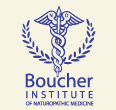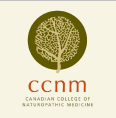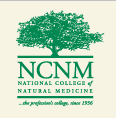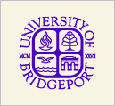A Naturopathic Perspective on
Cardiovascular Disease
Naturopathic Doctor | Cardiovascular Disease Expert
Are you looking beyond prescription medication for a safe and effective means of lowing your blood pressure, without undesirable side effects? Not all cardiovascular disease is caused by diet and lifestyle, but the vast majority, especially in contemporary America, can be traced to these two factors.
Many patients simply are not aware of the natural alternatives available to them for the treatment and prevention of hypertension. Some of these Naturopathic treatments include hydrotherapy, botanical medicine, exercise, nutrition, supplements and more.
What is cardiovascular disease?
Cardiovascular disease typically refers to a number of common conditions affecting the heart and arteries. Some of these conditions are chronic, whereas some are acute, and can be life-threatening.
As a doctor who takes a Naturopathic approach to medicine, I view cardiovascular disease as a set of conditions that are eminently preventable and treatable using natural approaches.
The most common forms of cardiovascular disease my patients experience include:
- Dyslipidemia (high total cholesterol, high LDL, low HDL)
- Hypertension (high blood pressure)
- Atherosclerosis (a hardening or blocking of the arteries)
- Angina (chest pain due to inadequate blood supply to the heart)
Common symptoms are few. Cardiovascular disease is a largely silent condition until it causes severe problems. As a result, I view screening for cardiovascular disease through regular testing as vital.
Heart disease in the U.S.
With the majority of Americans suffering from some level of cardiovascular disease — and presenting risk factors for other severe diseases as well — the prevalence of cardiovascular disease in our society is evidently high. The common root causes are poor diet and lifestyle; cardiovascular disease in its most common manifestation is preventable through dietary and lifestyle interventions, such as avoidance of saturated fat, adequate consumption of dietary fiber, and taking part in regular exercise.
To cure or to best manage cardiovascular disease as an ND, I rely on the Naturopathic approach:
- Diagnostic process: The first step involves lab testing for cholesterol levels, blood sugar levels, and inflammation levels. Subsequently, patients may also be referred for non-invasive cardiac imaging, such as an echocardiogram and a Carotid Intima-Media Thickness ultrasound (CIMT) test.
- Treatment & modalities: Diet and lifestyle are paramount here, but certain herbs and supplements have been shown to have a significant effect on reducing cardiovascular risk factors and alleviating symptoms for chronic cardiovascular conditions.
- Results & recovery: Many patients see tremendous reductions in cholesterol and blood pressure when they engage in diet and lifestyle changes. Additionally, many patients also benefit from naturopathic treatment when recovering from an acute cardiovascular event.
Patient case study
DG was a 65-year-old man with a five-year history of high blood pressure. His resting blood pressure was high at 165/95. In addition, he suffered from sudden spikes related to stress. He had been prescribed lisinopril but was hoping to discontinue due to the severe nausea it caused him.
As a Naturopathic Doctor, my patient intake involved an assessment of his diet and lifestyle, which revealed that while he was exercising regularly, his diet was poor and he was also consuming large amounts of coffee.
I recommended that he adopt a Mediterranean-style diet, rich in vegetables, fruits, fish and whole grains, and low in saturated fat. Additionally, I recommended he substituted black tea for coffee. Both of these changes were acceptable to DG as his family background was Turkish, and these changes meant embracing his traditional culture. In addition to lifestyle changes, I also recommended some stress management techniques and prescribed a homeopathic remedy to assist in stress reduction.
After only three months of actively applying various Naturopathic solutions, DG’s overall blood pressure had come down to 130/85, which I consider to be within acceptable limits. He spikes in his blood pressure had ceased as well.
At this time he completely discontinued taking lisinopril. While an immediate cessation of lisinopril could have resulted in severe consequences, DG was able to reduce his dose gradually and eventually discontinue it completely under the direction and supervision of his cardiologist, with whom I worked closely.
By implementing a holistic treatment plan of specific diet changes, stress reduction techniques, and a homeopathic remedy, it took my patient only three months to reverse a five-year and to better his health for life.
Additional reading
To understand more about the Naturopathic perspective on cardiovascular disease, read some of our experts’ blog posts:
»New Information About Vitamin D
»Omega-3s and Traumatic Brain Injury
»Oleocanthal: The Next Big Thing?
»Chia Seeds – The Ancient Aztec Power Food
»Give Thanks for Winter Squash
»A Graphic on the Cost of Fast Food
»May 11-15 is “Ride to Work” Week
Visiting a Naturopathic Doctor in your area can help you manage or cure your cardiovascular disease and restore you to optimal wellness.












